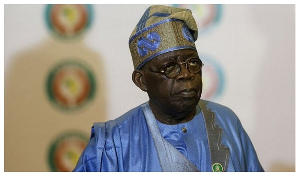Mr. Musa S. Mbenga, Country Representative of Food and Agriculture Organization (FAO), on Friday in Accra presented the Ghana National Aquaculture Development Plan (GNADP) to the Ministry of Food and Agriculture.
The plan would provide a solid foundation necessary of attracting and guiding the needed investment to be able to increase the country’s aquaculture production.
Mr. Mbenga said the GNADP provides a road map where aquaculture will contribute to food and nutritional security, employment generation, increased incomes, economic growth and poverty reduction.
He said it is estimated that, by the close of 2012 more than 50 per cent of world’s food fish supply would originate from aquaculture adding that Ghana’s annual output from aquaculture is estimated at 10,200 tons compared to an output of 1,000 tons in 2005, 3,800 tons in 2007 and 7,100 tons in 2009.
Mr. Mbenga noted that there has been a rise in aquaculture trends in the country which has testified to the fact that the nation has the potential to improve on its current fish farming output to contribute to food security and economic growth.
He stressed that the Fisheries commission in its bid to exploit the country’s full potential for aquaculture, has set a target of achieving 100,000 tons of farmed fish in five years .
Mr. Mbenga said for government to achieve this target, it sought support from FAO to assist in implementing the National Aquaculture Strategic Framework (NASF); adding that the Food and Agriculture Sector Development Policy II took its inputs for aquaculture development from the NASF.
He added that the assistance to government through the partnership has produced initiatives intended to help achieve the 100,000 tons target for 2016.
Mr. Mbenga noted that the initiatives include the GNADP, Aquaculture Spatial Database Establishment Report, Management Report, Capacity building for the fisheries commission staff in the use of Geographic Information System and Spatial Mapping of Agriculture sites in the ten regions.
Mr. Nii Amasah Namoale, Deputy Minister of Food and Agriculture thanked the FAO Country Representative and pledge government support in implementing the framework to achieve its intended targets.**
Business News of Saturday, 5 May 2012
Source: GNA












